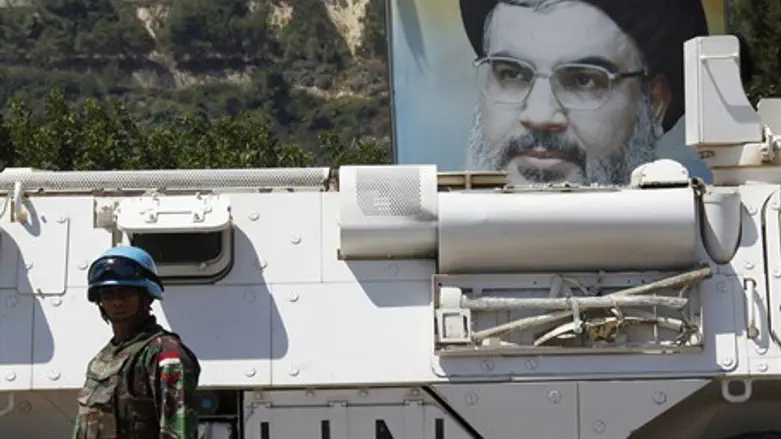
The United Nations peacekeeping force UNIFIL said Wednesday it has turned over a longtime local staffer to Lebanese authorities, who accuse him of "spying for Israel."
The Lebanese man who had worked in the UNIFIL administration for over 20 years is among three people accused by authorities of spying for the Jewish state.
On Sunday, Lebanese authorities claimed they had arrested the three suspects, a Syrian man and his Lebanese wife and a Lebanese man.
But the Lebanese man "was in the UNIFIL compound when authorities requested him," UNIFIL spokesman Andrea Tenenti told AFP.
"We asked UN headquarters in New York to determine whether immunity would be applied in his case, and the UN determined that since the allegations were not related to his official functions, immunity from legal proceedings would not apply," he added.
The man was taken into custody on Wednesday.
On Sunday, Lebanon's General Security service announced it had arrested a "spy network."
It accused the three suspects of gathering information on individuals and security and military targets.
It said the three also allegedly filmed "sensitive" roads and other areas in south Lebanon "and sent the footage to their employers to be used in later attacks."
Lebanon and Israel remain in a state of war. The Iran-proxy terror group Hezbollah has seized a great measure of control in Lebanon, and often has attacked Israel over the border.
UNIFIL, the United Nations Interim Force in Lebanon, monitors the border and has a force of some 10,000 international peacekeepers. It also employs numerous local staff members serving in non-peacekeeping roles.
In 2006, Hezbollah attacked Israel, launching the month-long Second Lebanon War. Last December, Hezbollah detained a senior party official on allegations of spying for Israel and "sabotaging security operations" abroad.
Between April 2009 and 2014, Lebanese authorities detained more than 100 people accused of spying for Israel, most of them army members or telecommunications employees. But such arrests have since been rare.
AFP contributed to this report.